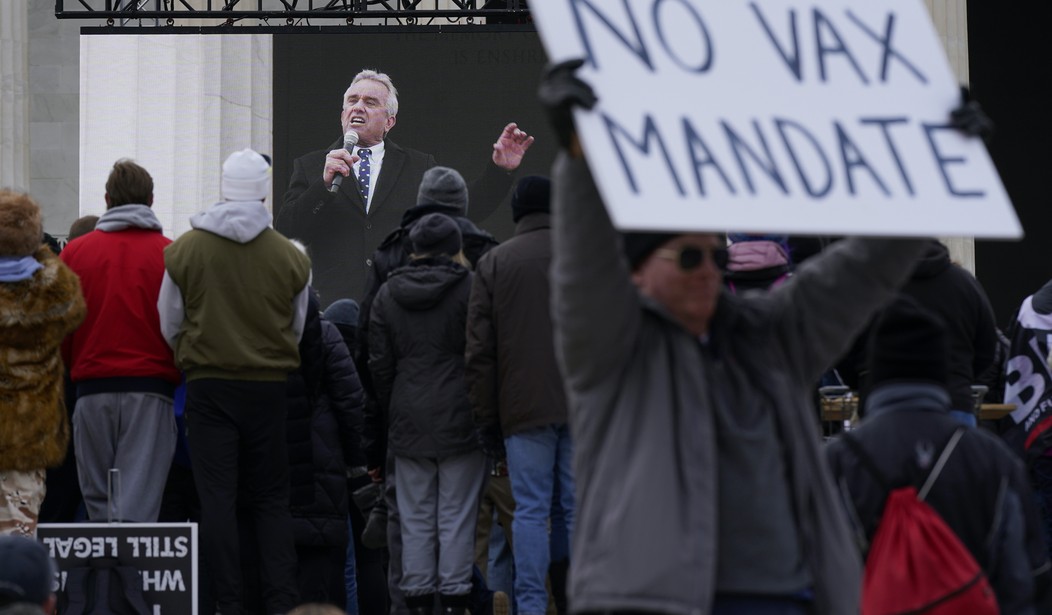Over the past five to 10 years, conservatives have become accustomed to seeing stories like this one. Hypersensitive social justice warrior types in America’s universities get super whiny because other students have differing political opinions. Instead of engaging in spirited debate, they seek to silence those who dare to express conservative viewpoints. But what many of us haven’t yet realized is the impact this will have on society in the future – especially in the workplace.
Author Karin Lips wrote a piece for The Washington Examiner about how the leaked Supreme Court draft opinion on Dobbs v. Jackson Women Health Organization motivated leftist students at Yale Law School to demonize pro-life students and suggest ways to use fear to suppress their views. “First-year Yale Law School student Shyamala Ramakrishna posted to Instagram that ‘the members of [Yale Law School’s conservative Federalist Society] are conspirators in the Christo-fascist political takeover we all seem to be posting frantically about on Instagram dot com.’”
The student continued, asking, “[s]o why are they still coming to our parties/laughing in the library/roaming these weirdly high school-esque halls with precious few social consequences and without unrelenting daily confrontation?”
This isn’t a blatant threat. But the issue becomes even more pronounced when these individuals are willing to threaten others for having certain opinions. “In March, Yale Law School students disrupted a bipartisan panel on free speech. The event was paused when a student told a member of the Federalist Society chapter that she would “literally fight you, b****,” Lips wrote.
Unfortunately, students like Ramakrishna exist on many of America’s college campuses. You have probably seen endless videos and stories of students shouting down conservative speakers while giving speeches on college campuses. In plenty of cases, some of these individuals have engaged in violence to prevent right-leaning views from being heard by their fellow students. Like her, they believe those who do not toe the progressive line deserve public ostracization and scorn. They must be marginalized. If they can’t get the university to compel these people to remain silence, these woke students are willing to use fear of social – and even physical – reprisals.
Lips points out that because of this, “[i]t is no wonder that more conservative students and liberal students self-censor.” She referenced a study conducted by the Foundation for Individual Rights in Education (FIRE), College Pulse, and RealClearEducation which revealed 17 percent of students indicated they felt they could not voice their opinions because of “how students, a professor, or the administration would respond.”
What is striking about this survey is that only 9 percent of conservative students said they never self-censored. This is precisely the dynamic far-leftists want. I used the same study when I wrote previously on how progressives are seeking to cultivate a generation of Americans who self-censor out of fear of negative consequences. This type of behavior is no longer confined to college campuses and is seeping into the workplace. It is not quite as rampant in corporations as it is in the world of academia, but it is gradually becoming more and more prevalent – and it is happening right under our noses.
On my podcast, I spoke with Terry Pell, president of the Center for Individual Rights (CIR), a nonprofit public interest law firm that specializes in protecting individual civil rights. Over the past few years, CIR has come across a growing number of cases in which people are having their jobs threatened for expressing right-leaning political views – even when they are not at work. Right now, they are litigating a variety of active cases in which employees have been wronged by their employers for voicing their opinions.
Pell told me that speech suppression issue is “no longer isolated or focused on the college campuses” and that “in the last four or five years, I would say political censorship has become a mainstream American issue.”
He continued:
“And a good reason for that is that it has entered the workplace. Now, as it turns out, employees can be fired for expressing almost any view that an outside political activist later decides is controversial. So that’s the big change. It’s one thing if you’re a college student, even a college Professor, and you say something unpopular and you’re investigated by the speech police at your University, it’s quite a different thing if you go to work and are fired for something you said say in an off work podcast that somebody decides to weaponize in order to make you the villain and get you fired.”
CIR is currently representing multiple people facing the exact scenario Pell laid out. But it’s happening more often than we might think.
Last year, I wrote about a Southlake, TX, resident who got in trouble because he criticized a diversity program that was being considered by his child’s school district. Local progressive activists found out he worked for American Airlines as a pilot and launched a social media campaign urging the company to fire him. It’s not known whether he kept his job, but the fact remains: We are moving towards a professional environment in which having conservative views could deprive one of their livelihood. Cancel culture isn’t only for celebrities anymore. If we don’t start pushing back now, the authoritarian left will make it a norm in the workplace.











